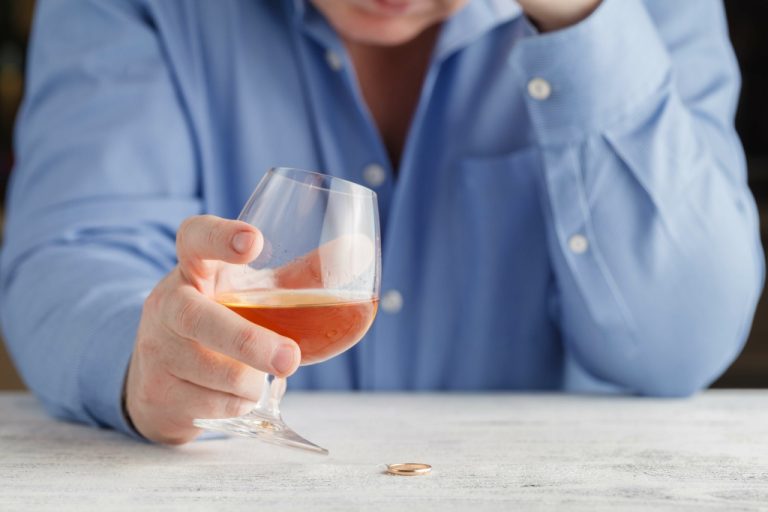Exercise can also serve as a valuable distraction, enabling you to break out of the cycle of negative thoughts that often fuel mood disorders. If you self-medicate your moods what is Oxford House and emotions, chances are you look at your substance use in ways that make it seem more useful than it really is. For example, you may, like many people, drink alcohol as a nightcap to help you sleep. But while it can help you to fall asleep faster, alcohol will also disrupt your sleep. It can necessitate extra trips to the bathroom, aggravate breathing problems, interfere with the restorative REM-sleep phase of your sleep, and cause you to wake up earlier than normal.
Medications
If you experience withdrawal symptoms when you stop drinking alcohol, you may want to consider a medical environment where you can receive the support of mental health professionals. Research shows that there is a big overlap between people who have PTSD and those who develop substance use disorders, and many people are diagnosed with both at some point. People with both disorders have more chronic physical health problems, more social problems, and an increased risk of violence or suicide. Protective factors such as individual traits like optimism and environmental influences like healthy family and peer relationships, as well as targeted prevention interventions, can reduce the risk of developing a substance use disorder. As a result, a trauma survivor may be more sensitive to and less able to cope with stress in everyday life. Most people will recover from these symptoms, and their reactions will lessen over time.

Family therapy
- It can help people express and process their thoughts and feelings (also called expressive writing), which can be a good way of coping with anxiety.
- Healthy methods include forming close relationships, practicing mindfulness, or seeking help from a mental health professional.
- Everyone’s connection to alcohol is different, and there’s no one-size-fits-all approach to address that relationship.
- Unfortunately, these effects are often short-lived and do not represent effective coping strategies.
Sarah, a 32-year-old marketing executive, was overwhelmed by work stress and personal responsibilities. She began expressive writing, using a journal to process her emotions and identify stress triggers. This practice brought clarity and relief, helping her understand her emotions. Today, we will explore what is a healthy coping mechanism, delve into examples of healthy coping strategies, and highlight the most powerful methods for managing stress and anxiety. Johnson, whose patients have typically tried multiple medications without success, uses the GeneSight test in her practice as a tool to learn as much as she can about the patient before starting another mental health medication treatment.
Are there treatments for people with substance use disorders who have another mental health disorder?
This short activity offers a recognize-avoid-cope approach commonly used in cognitive behavioral therapy, which helps people to change unhelpful thinking patterns and reactions. It also provides worksheets to help you uncover the nature of your urges to drink and to make a plan for handling them. Experiencing prejudice and stigma can also cause chronic stress, raising the risk of substance use and misuse. Research suggests that people who feel discriminated against also have a higher risk of substance misuse. If you are questioning whether you or your loved one uses alcohol as a coping mechanism, don’t hesitate to reach out to us.

“Maladaptive” means this type of daydreaming is an unhealthy or negative attempt to cope with or adapt to a problem. These supportive connections, whether they come in the form of an in-person support group led by a mental health professional or an online group, can help people with PTSD connect with other people who share their struggles. This can be a source of valuable connection, encouragement, advice, and strength as people cope with the troubling symptoms of PTSD.
Developing healthier habits and breaking the cycle
Non-alcoholic drinks are presented to control for the potential effect of thirst. The ad-libitum taste test is a valid method for the assessment of alcohol intake in the laboratory supported by strong associations between ad-libitum consumption and typical alcohol consumption 84. It is also robust against several potential confounders such as time of day or participant awareness 84.

Coping Skills in Addiction Treatment
- Fortunately, many healthy coping skills for PTSD can help ease anxiety and other symptoms.
- However, more research is necessary before experts can confirm if this is the case.
- If you’re already at risk for a mental health disorder, drinking heavily or using drugs could lead to the development of new problems—beyond those that prompted your self-medication in the first place.
- Long-term alcohol use can also increase your chance of developing certain types of cancer.
- However, using alcohol as a catch-all way to balance out emotional experiences or become less present has some real consequences.
In some cases, these responses continue for a longer period of time and interfere with everyday life, a condition known as post-traumatic stress disorder (PTSD). When a person is under stress, the body reacts by releasing hormones that produce the “fight or flight” response. However, long-term https://ecosoberhouse.com/article/how-to-stop-using-alcohol-as-a-coping-mechanism/ stress (also called chronic stress) may contribute to or worsen a range of health problems including digestive disorders, headaches, sleep disorders, and other symptoms. For some, grabbing a drink is the easiest way to deal with something they don’t know how to handle or do not want to. Continued avoidance of life’s challenges and lack of healthy coping mechanisms can be direct facilitators of problematic drinking down the road. As with anxiety and mood disorders, it can help for a healthcare professional to create a timeline with the patient to clarify the sequence of the traumatic event(s), the onset of PTSD symptoms, and heavy alcohol use.
The Link Between Avoidance Coping and Anxiety
Those areas are usually ones that control executive functions like decision-making, planning and self-motivation. If we rely on these “strategies” for stress relief they can get out of control and create more stress. Instead, it’s more effective to create healthy habits that build resilience. Some forms of passive coping, however, are not maladaptive and are actually healthy.
Most CBT for social anxiety disorder involves a combination of these different approaches. Regardless of which specific CBT measures are evaluated, it is important to recognize that non-pharmacological treatments for social anxiety disorder are effective (Taylor 1996) and generally work as well as medication. In addition, some findings indicate that despite a slower onset of improvement compared with pharmacotherapy, the beneficial effect of psychotherapy may be more enduring (Heimberg 2002). These sedative medications are also effective in the treatment of social anxiety disorder. For example, alprazolam and clonazepam are both well tolerated and have shown promise in the treatment of social anxiety (Blanco et al. 2002).
The other broad category of coping is called “active coping” or “approach coping.” This type of coping addresses a problem directly as a means to alleviate stress. Avoidance coping involves trying to avoid stressors rather than dealing with them. Eating a balanced, diet of lean meats and fresh fruits and vegetables can also help you feel better overall and relieve stress.
However, they suspect it happens because maladaptive daydreaming can be a coping mechanism for problems like anxiety, depression and other mental health conditions. If you have experienced or witnessed a traumatic event, you may undergo an unending onslaught of upsetting symptoms and may turn to alcohol as a coping mechanism for this. Alcohol may offer a temporary relief, a feeling of control over the memories, or a way to numb the pain12. Alcohol is a depressant and can intensify feelings of anxiety and depression. Many people may perform potentially addictive behaviours, such as drinking large quantities of alcohol, to avoid physical and/or mental discomfort.
